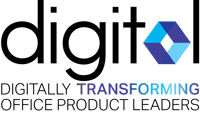We're conditioned from a young age to believe bigger is better but really, is it?
Over time I've become more skeptical of the true benefits of scale in business. Of course, my skepticism has no impact on the inevitable so, rather than risk acquiring the label of cynic and naysayer, I started to focus my thinking on opportunities created from the weaknesses that appear as large organizations encumber themselves in bureaucracy, develop poor customer service and a multitude of other performance issues resulting from their scale.

"Our slogan is bigger is not better, better is better. By that we mean we provide personal, professional, one-on-one service to our clients."
There's no doubt, in manufacturing and other capital intensive areas of business, scale is very important.
But consider these points:
-
Small, local businesses by definition do not have scale
-
There are 28 million small businesses in the United States
-
They provide 55% of all jobs and account for 54% of all sales
-
Small businesses have accounted for 65% of net new jobs since the 1970s
Based on these four points alone, small enterprises are clearly very important to the economy but, nevertheless, inevitably find it difficult to compete effectively with large organizations. This is especially the case in maturing industries where behemoths have emerged, such as in the office products industry. Historically, it's been tough to see how small businesses can successfully compete over the longer term so a high level of success / failure churn has seemed inevitable.
But, then the Internet arrived - the greatest leveler of playing fields of all time. Leveraging information technology alongside a personal presence in local markets now has the potential for small business transformation enabling and them to run rings around large, slow moving behemoth organizations.
 For large organizations such as Amazon, eBay, Staples, DepotMax, etc. all have established brands, strong web domains, high levels of traffic, large numbers of product reviews and, consequently, can get away with "catalog" websites rarely investing resources to publish unique material such as that which comes with blogging etc.
For large organizations such as Amazon, eBay, Staples, DepotMax, etc. all have established brands, strong web domains, high levels of traffic, large numbers of product reviews and, consequently, can get away with "catalog" websites rarely investing resources to publish unique material such as that which comes with blogging etc.
Frequently we find SME still mimic these "catalog" websites. They also spend little to no effort developing unique, interesting and relevant content that could be leveraged to attract traffic and gather leads. Unfortunately, without content, an increasing domain strength, product reviews, customer testimonials, etc. there's no way for a business to build traffic for the purposes of lead nurturing or e-commerce transactions. Simply put, "catalog" based e-commerce sites are mostly a waste of time and money as they usually fail to gain any traffic.
For the last few years I've been working closely with Power E-commerce and, in September 2015, was excited to accept the CEO role. I believe the company has a compelling proposition for re-sellers needing to upgrade their e-commerce capabilities and am encouraged by the prospects for the business.
However, what I've also learned over the last few years is that there's much, much more to e-commerce than simply deploying an online shopping cart.
It's important for SME not to ignore just how powerful an asset their physical presence in local markets can be. By deploying an integrated information technology platform, writing useful content, engaging with intelligent use of the various social media platforms and combining this activity with a strong personal presence in local markets, SME can build a competitive advantage over slow-moving behemoth companies.
The Power E-commerce platform provides a key element of the information technology platform and, with the remaining components available from other world-class software providers, it's possible for SME to deploy sophisticated platforms at a very reasonable cost.
Once a SME has established the essential components of the information technology platform this is where the business opportunity we're developing gets really interesting.
In the first part of 2016 the role of our site at www.EandSsolutions.com will migrate from "informational" to "educational" as we strive to provide an economical and effective way to pass on our knowledge to small business owners interested in developing e-commerce.
I have spent thousands of hours over the last fifteen years or so picking my way through the minefield of social media, e-commerce and information technology, including, in my two most recent assignments, the build-out of powerful and fully integrated IT platforms. I realize most owners and operators of SME don't have this experience or knowledge and, by launching a series of courses to teach what I know, we can improve the e-commerce performance of our target customers and more fully realize the potential of the Power E-commerce solution.
The EandSsolutions website has been built to demonstrate the combined use of information technology and content in small business. Launched three months ago it's already ranked by Alexa as the 478,000 most popular in the United States and at 1.7 million globally. Bear in mind there are nearly one billion websites on the Internet and the average small business (in a study of over 150 United States office products websites) showed an Alexa ranking anywhere in the range of 2 - 20 million.
A small business and a global Alexa ranking is mostly irrelevant. Even a local business and a national ranking is pretty irrelevant. But .. a local business and a local ranking is very relevant and very valuable. By focusing its web traffic development efforts on its relevant local market then a small business builds a valuable asset as well as improving its prospects for profitable growth.
Take a look at a two-year business projection based on your data input
Our objective over the next 12-18 months is to improve the U.S. Alexa ranking for EandSsolutions to 100,000, bearing in mind the national ranking is important to our business objectives because of where our target audience is located. However, for a local business utilizing the same traffic development techniques as we are using at EandSsolutions, but with an appropriate emphasis on developing awareness in a smaller local market, its local ranking will be proportionately much higher (where it counts most) than its national ranking.
Furthermore, given the global presence and dynamic nature of the Internet, a strong local presence will, over time, constantly expand its geographical footprint thereby compounding the returns of the initial and ongoing investment.
In summary I believe SME can transform their businesses over time by:
- Deploying an integrated information technology platform
- Generating interesting, relevant content
- Understanding and using relevant social media platforms for trust, subject-authority, and engaging an audience
- Utilizing inbound digital marketing technology for lead nurturing and conversion
By combining these "digital" activities with traditional "feet-on-the-street" sales tactics for lead generation, SME will establish sustainable competitive advantages over much larger companies.
For additional foundation material relating to the office products industry and the platform for growth and small business transformation, please download our free e-book by clicking on the button below.









